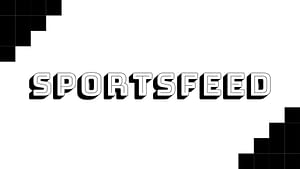IFAB to Revise Rules After Arteta’s Controversial Red Card Escape
The International Football Association Board (IFAB) is gearing up to make a significant change to the rules of the game, and it all stems from a controversial moment involving Arsenal manager Mikel Arteta. During Arsenal’s Champions League clash against Inter Milan, Arteta found himself at the center of a heated debate after interfering with the ball while it was still in play. The incident, which occurred at the San Siro, has sparked discussions that could reshape the Laws of the Game.
Here’s what went down: Inter Milan defender Matteo Darmian was chasing down a ball that appeared to be heading out for a throw-in. Before the ball had fully crossed the line, Arteta picked it up, effectively stopping play. Referee Istvan Kovacs issued Arteta a yellow card for his actions, but according to the current Laws of the Game, the Arsenal boss should have been shown a red card. This decision—or rather, the lack of a red card—has now become the catalyst for a potential rule change.
Why the Rule Change?
Arteta’s case isn’t an isolated incident. Earlier this year, West Bromwich Albion manager Carlos Corberán and Kilmarnock boss Derek McInnes were both sent off for similar actions. However, the IFAB has taken a closer look at these situations and concluded that the current rules might be too harsh in cases where the coach’s intention is simply to help the game restart quickly. This was deemed to be the case for Arteta, Corberán, and McInnes.
After lengthy discussions at its Annual Business Meeting on Monday, the IFAB recommended a change to the law. The proposed adjustment would allow referees to issue a yellow card instead of a red when a coach interferes with the ball but does so with the sole intention of speeding up the game. This change, if approved, would come into effect next summer, pending a final decision at the IFAB’s Annual General Meeting on March 1.
What’s Changing?
The proposed rule change is straightforward but significant. Here’s a breakdown of what’s on the table:
- Currently, interfering with the ball while it’s in play is a red-card offense for coaches. The new rule would allow referees to issue a yellow card if the interference is deemed to be in the spirit of helping the game restart quickly.
- The change aims to differentiate between intentional disruption and well-meaning actions that don’t warrant the harsh punishment of a red card.
But that’s not the only rule under review. The IFAB is also looking to tweak the rules around dropped balls. Under the current system, if a team has possession and a pass hits the referee, the team retains possession via a dropped ball. The proposed change would give the dropped ball to the opposition if the pass was clearly wayward and intended for the other team. This adjustment is designed to make the game fairer and reduce confusion in such scenarios.
What Happens Next?
While the IFAB’s recommendations are a step forward, they’re not set in stone just yet. The proposed changes will be up for approval at the IFAB’s AGM on March 1. If given the green light, the new rules will come into effect next summer, potentially altering how referees handle these situations moving forward.
For now, the spotlight remains on Arteta and the incident that sparked this debate. Arsenal fans might feel relieved that their manager escaped a red card, but the controversy has undoubtedly left its mark on the footballing world. Meanwhile, Inter Milan supporters and neutral observers alike are left wondering how the game might have unfolded had Arteta been sent off.
What Does This Mean for the Game?
The proposed changes reflect a broader trend in football: the desire to make the game fairer and more balanced while also accounting for the nuances of human behavior. Coaches like Arteta, Corberán, and McInnes may have acted impulsively, but their intentions weren’t malicious. By allowing referees to issue yellow cards in such cases, the IFAB is acknowledging that not all rule violations are created equal.
As for the dropped ball rule, the adjustment seems like a no-brainer. Giving the ball to the opposition when a pass was clearly intended for them is a simple way to ensure fairness and maintain the flow of the game.
These changes, if implemented, could have a lasting impact on how the game is played and officiated. For now, all eyes are on the IFAB’s AGM in March, where the final decision will be made. Until then, the football world will continue to debate the merits of these proposed adjustments—and the role of managers like Arteta in shaping the future of the sport.
Originally Written by: Dale Johnson





















